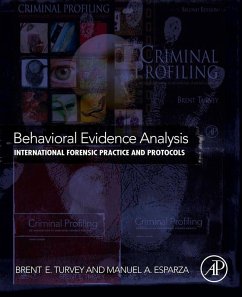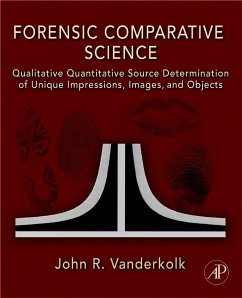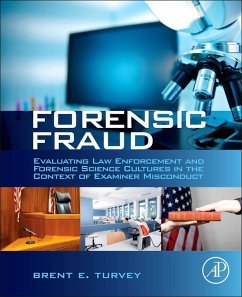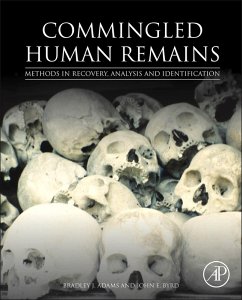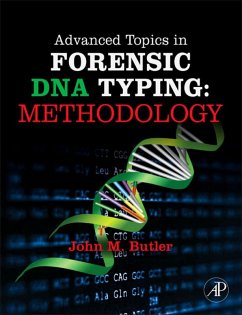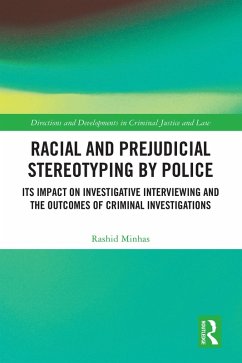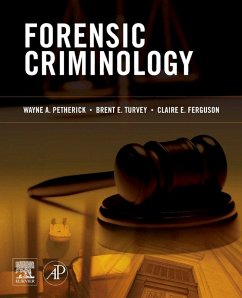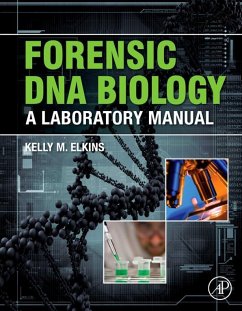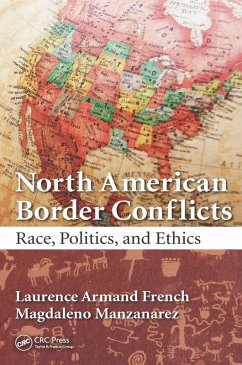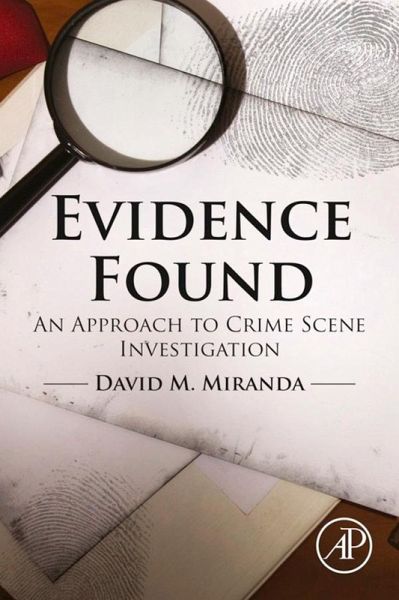
Evidence Found (eBook, ePUB)
An Approach to Crime Scene Investigation
Versandkostenfrei!
Sofort per Download lieferbar
31,95 €
inkl. MwSt.
Weitere Ausgaben:

PAYBACK Punkte
16 °P sammeln!
Evidence Found: An Approach to Crime Scene Investigation is not another analysis of forensic errors using an "After the Fact" or "Lessons Learned" approach but a "Before the Fact" guide that examines the thought processes that can lead to those mistakes. Plus a few extras tips and tricks from the author's experience of over 25 years. Many high-profile crime scene investigations (and routine ones, for that matter) have suffered errors that have had negative impact on the investigation result and in the courtroom. Typically, we examine what happened and develop a useful list of what to do and wh...
Evidence Found: An Approach to Crime Scene Investigation is not another analysis of forensic errors using an "After the Fact" or "Lessons Learned" approach but a "Before the Fact" guide that examines the thought processes that can lead to those mistakes. Plus a few extras tips and tricks from the author's experience of over 25 years. Many high-profile crime scene investigations (and routine ones, for that matter) have suffered errors that have had negative impact on the investigation result and in the courtroom. Typically, we examine what happened and develop a useful list of what to do and what not to do, fixing the symptoms but potentially leaving ourselves open to the same error type on the next scene. The reason? Many crime scene mistakes are the result of systemic issues that are repeated due to a failure to include an evaluation of the decision-making process, including our own foundations of knowledge. Through case study and logical argument, this book attempts to provide a framework to recognize, evaluate, and alter negative decision-making patterns, including evaluating our own experience, before they negatively impact an investigation or the overall operation of a forensic unit. - Enhances the base concepts of evidence search and sequential processing for error avoidance - Examines the systemic areas/practices of a crime scene investigation where errors can occur - Includes a Evidence Matrix - a crime scene evaluation tool that aids in sequential processing decisions - Contains tips on overcoming common crime scene issues, inlcuding night time searches - Provides courtroom Testimony - communicating comparison findings to a jury
Dieser Download kann aus rechtlichen Gründen nur mit Rechnungsadresse in A, B, BG, CY, CZ, D, DK, EW, E, FIN, F, GR, HR, H, IRL, I, LT, L, LR, M, NL, PL, P, R, S, SLO, SK ausgeliefert werden.




